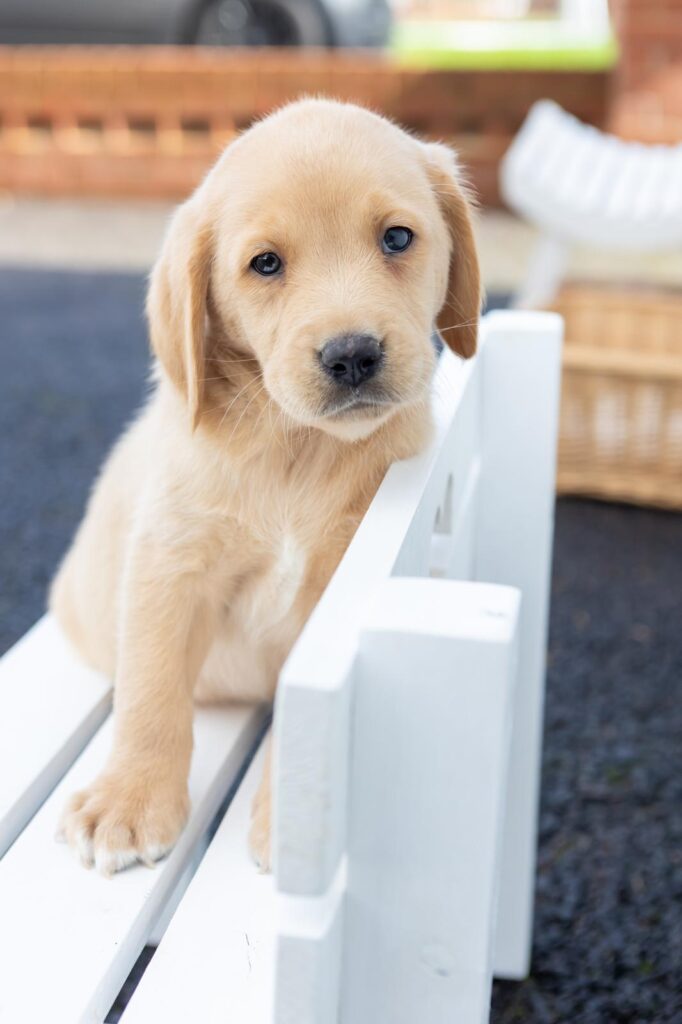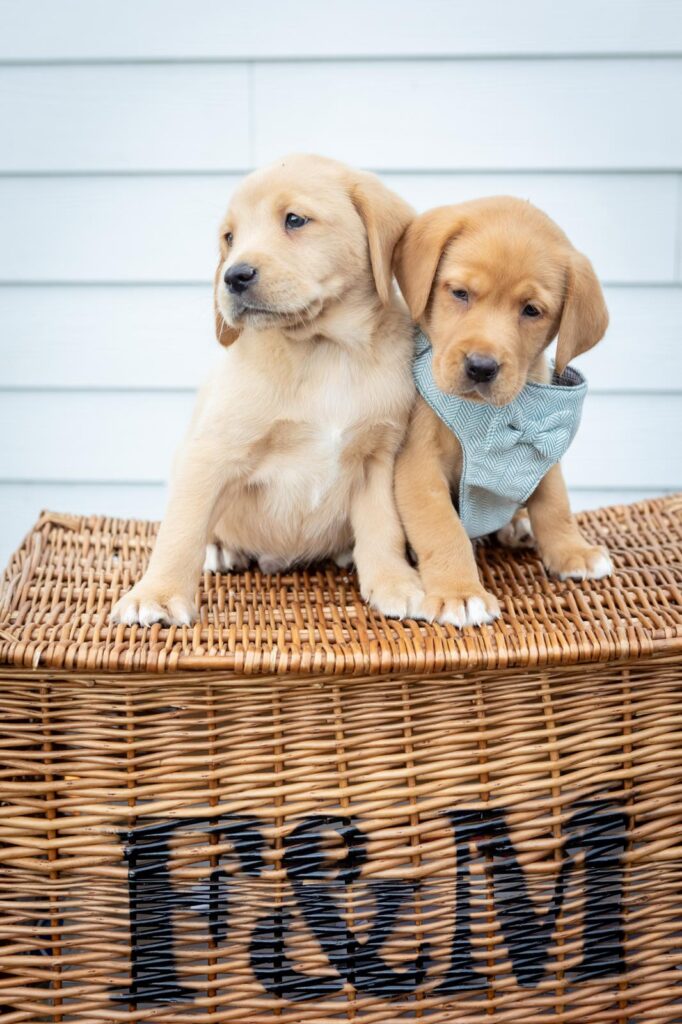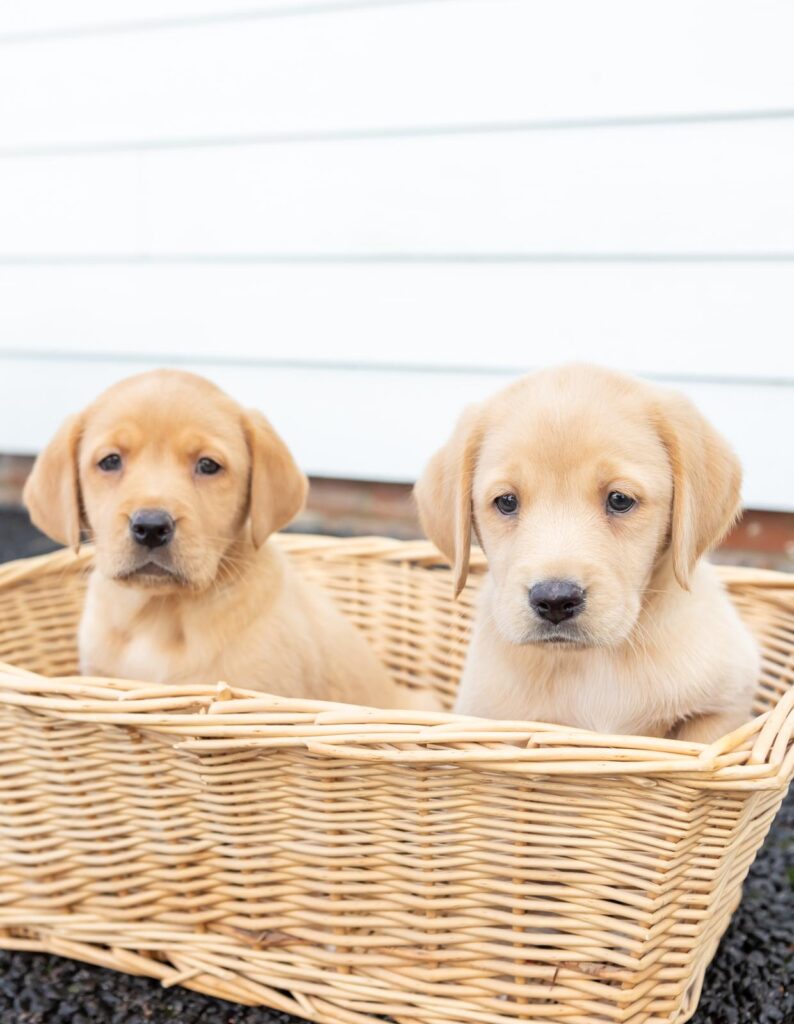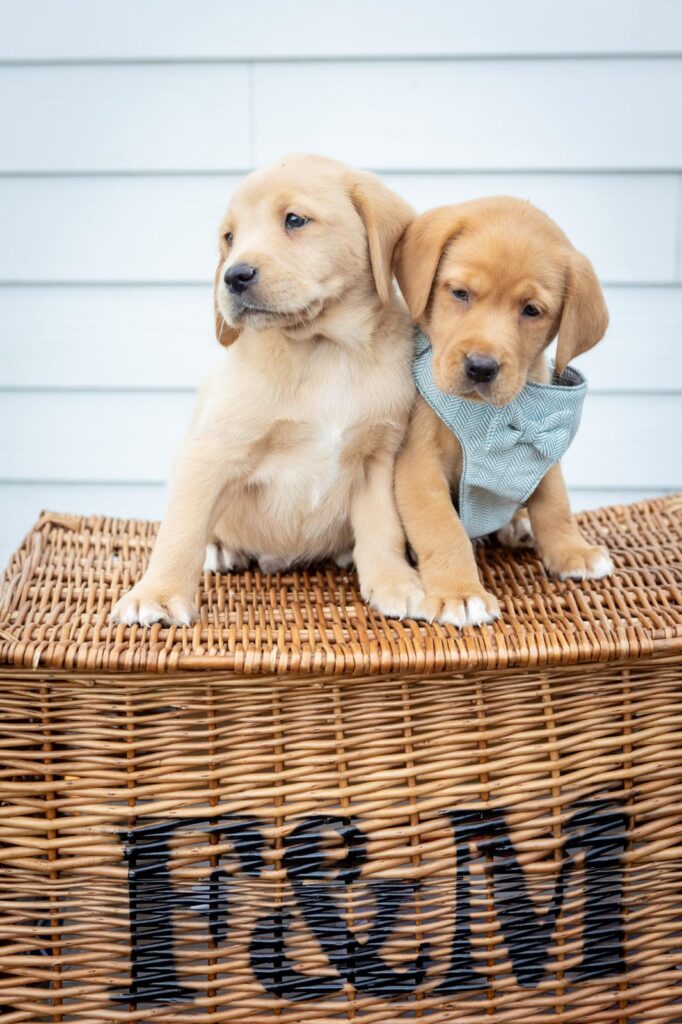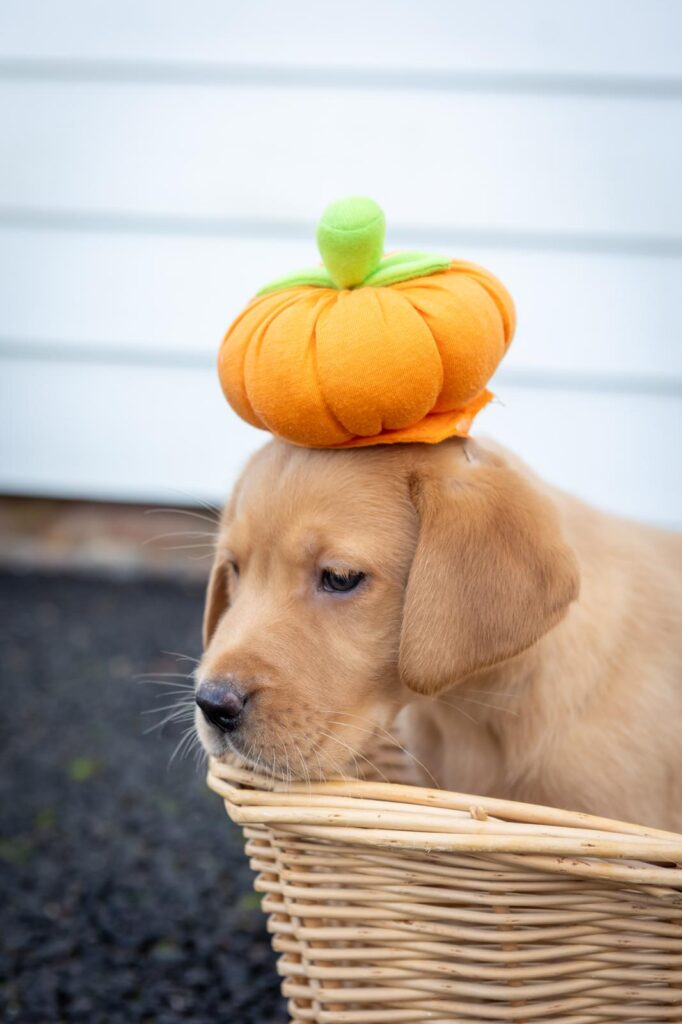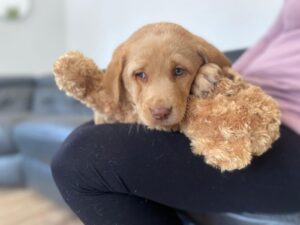Bringing home a Labrador puppy is an exciting and rewarding experience. These intelligent, affectionate, and playful dogs make fantastic companions, but raising a puppy requires patience, preparation, and knowledge. Whether you’re a first-time dog owner or an experienced Labrador lover, this guide will help you navigate the early stages of puppyhood.
Choosing the Right Labrador Puppy
Before bringing a puppy home, it’s important to ensure you’re buying from a reputable breeder. In the UK, responsible breeders will:
- Be Kennel Club (KC) registered
- Provide health certificates for the parents, screening for hip and elbow dysplasia, progressive retinal atrophy (PRA), and other common Labrador health issues
- Allow you to visit the puppies and meet the mother
- Raise puppies in a clean, socialised environment
Avoid buying from puppy farms or unregistered breeders, as these puppies may have genetic health issues or poor socialisation.
Essential Puppy Supplies
To make the transition smoother, have these essentials ready before your Labrador puppy arrives:
- A comfortable dog bed
- A crate for training and sleeping
- High-quality puppy food (opt for UK brands like Royal Canin, Arden Grange, or Burns)
- Stainless steel food and water bowls
- A collar, lead, and ID tag (UK law requires dogs to wear an ID tag in public)
- Chew toys to soothe teething gums
- Puppy training pads for house training
- A soft grooming brush (Labradors shed year-round)
Feeding and Nutrition
Labradors are known for their love of food, but overfeeding can lead to obesity. Puppies need high-protein, nutrient-rich food to support growth.
- 8-12 weeks: 4 small meals per day
- 3-6 months: 3 meals per day
- 6+ months: 2 meals per day
Look for UK vet-recommended brands with no artificial additives. If unsure, your vet can advise on the best diet for your puppy’s needs.
House Training Your Labrador Puppy
- Take them outside frequently, especially after meals and naps
- Use positive reinforcement (praise and treats) when they toilet outside
- Stick to a routine—Labradors thrive on structure
- Expect accidents—never punish, just clean up and try again
Most Labrador puppies are fully house-trained by 4-6 months, but some may take longer.
Basic Training and Socialisation
Labradors are intelligent and eager to please, making training easier than some other breeds. Start with these essential commands:
- Sit – for mealtime and greetings
- Stay – for impulse control
- Come – for recall training
- Leave it – to prevent chewing or eating harmful objects
Exercise Needs for a Growing Labrador
- 8-12 weeks: Gentle play in a secure garden
- 3-6 months: Short walks (5 minutes per month of age)
- 6+ months: Gradually increase activity, but avoid excessive running or jumping until 12-18 months
By adulthood, Labradors need at least 1-2 hours of daily exercise.
Grooming and Care
Labradors have a short but dense double coat that sheds year-round. Regular grooming helps keep their coat healthy:
- Brush twice a week to remove loose hair
- Bathe only when necessary (Labradors love water, but too many baths strip natural oils)
- Clean their ears weekly to prevent infections
- Trim nails regularly to prevent overgrowth
Common Health Concerns
While Labradors are generally healthy, they are prone to certain breed-specific conditions:
- Hip & Elbow Dysplasia – Avoid excessive exercise as a puppy
- Obesity – Stick to a controlled diet and avoid overfeeding
- Ear Infections – Clean ears regularly, especially after swimming
- Progressive Retinal Atrophy (PRA) – Ensure parents are screened before buying a puppy
Routine vet check-ups and vaccinations will help keep your Labrador healthy for years to come.
Final Thoughts
Raising a Labrador puppy is a big commitment, but with the right training, care, and love, they’ll grow into a loyal and affectionate companion. If you’re thinking of bringing a Labrador puppy into your home, make sure you’re prepared for the responsibility and ready to provide a loving forever home.
If you’re looking for KC registered Labrador puppies in the UK, contact Lynsted Labs today to find out about our latest litters.

